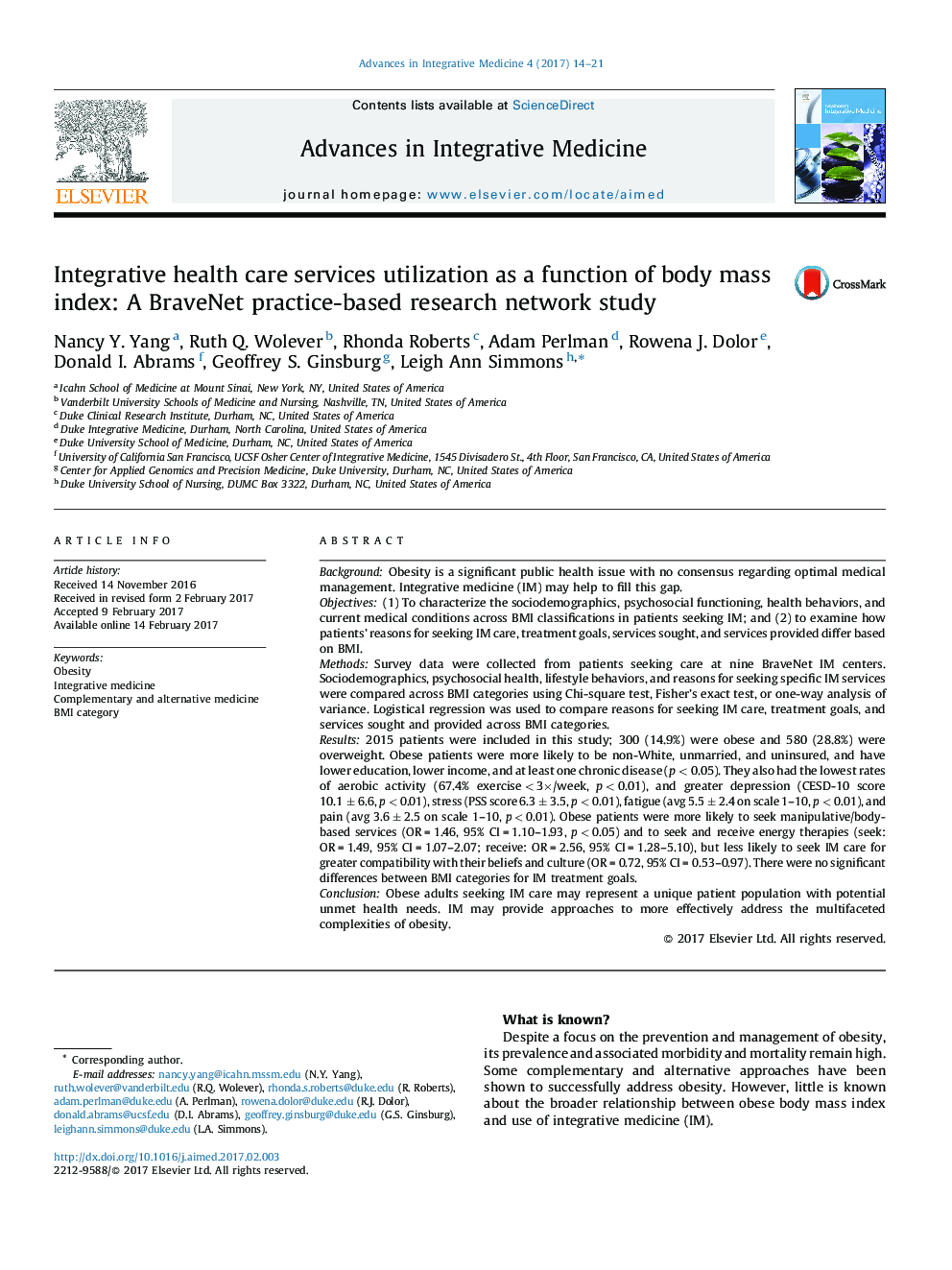| کد مقاله | کد نشریه | سال انتشار | مقاله انگلیسی | نسخه تمام متن |
|---|---|---|---|---|
| 5558986 | 1561298 | 2017 | 8 صفحه PDF | دانلود رایگان |

BackgroundObesity is a significant public health issue with no consensus regarding optimal medical management. Integrative medicine (IM) may help to fill this gap.Objectives(1) To characterize the sociodemographics, psychosocial functioning, health behaviors, and current medical conditions across BMI classifications in patients seeking IM; and (2) to examine how patients' reasons for seeking IM care, treatment goals, services sought, and services provided differ based on BMI.MethodsSurvey data were collected from patients seeking care at nine BraveNet IM centers. Sociodemographics, psychosocial health, lifestyle behaviors, and reasons for seeking specific IM services were compared across BMI categories using Chi-square test, Fisher's exact test, or one-way analysis of variance. Logistical regression was used to compare reasons for seeking IM care, treatment goals, and services sought and provided across BMI categories.Results2015 patients were included in this study; 300 (14.9%) were obese and 580 (28.8%) were overweight. Obese patients were more likely to be non-White, unmarried, and uninsured, and have lower education, lower income, and at least one chronic disease (p < 0.05). They also had the lowest rates of aerobic activity (67.4% exercise < 3Ã/week, p < 0.01), and greater depression (CESD-10 score 10.1 ± 6.6, p < 0.01), stress (PSS score 6.3 ± 3.5, p < 0.01), fatigue (avg 5.5 ± 2.4 on scale 1-10, p < 0.01), and pain (avg 3.6 ± 2.5 on scale 1-10, p < 0.01). Obese patients were more likely to seek manipulative/body-based services (OR = 1.46, 95% CI = 1.10-1.93, p < 0.05) and to seek and receive energy therapies (seek: OR = 1.49, 95% CI = 1.07-2.07; receive: OR = 2.56, 95% CI = 1.28-5.10), but less likely to seek IM care for greater compatibility with their beliefs and culture (OR = 0.72, 95% CI = 0.53-0.97). There were no significant differences between BMI categories for IM treatment goals.ConclusionObese adults seeking IM care may represent a unique patient population with potential unmet health needs. IM may provide approaches to more effectively address the multifaceted complexities of obesity.
Journal: Advances in Integrative Medicine - Volume 4, Issue 1, April 2017, Pages 14-21